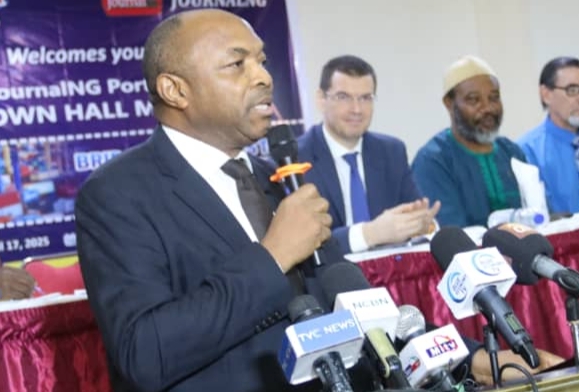
The Chairman of the Nigerian Ports Consultative Council (NPCC), Mr. Bolaji Sunmola, has said that Nigeria has the capacity to become a leader in Africa’s maritime sector.
Mr. Sunmola disclosed that the maritime sector is not properly harnessed in Nigeria despite its significant contribution to the economy.
He made the remarks while delivering a speech at the 5th JournalNG Port Industry Town Hall Meeting themed “Bridging the Gap to Actualise 24-hour Port Operations in Nigeria: A Strategic and Sustainable Pathway”, held in Apapa, Lagos on Thursday, April 17, 2025.
Speaking at the event, Sunmola said that Nigeria’s seaports remain strategic gateways to the nation’s economy, noting that they facilitate over 85% of the country’s external trade by volume.
“However, their potential remains largely underutilized due to inefficiencies rooted in infrastructural decay, bureaucratic delays, fragmented regulatory systems, and, most notably, limited operational hours.
“A 2023 NBER working paper highlighted that increasing port efficiency from the 25th to the 75th percentile globally can reduce shipping costs by as much as 12%. For Nigeria, this presents a compelling case: if we are to fully leverage our maritime advantages, we must operate on a 24-hour schedule, like many global port hubs,” he remarked.

He stressed the need for 24-hour port operations, citing modern seaports in Singapore, Rotterdam, Busan, which are active for the entirety of the day and week.
According to him, their uninterrupted activities allow for quicker vessel turnaround, optimised cargo flows, and synchronised hinterland logistics.
“Nigeria, by contrast, loses productive hours at night, resulting in ship discharge delays, and increased costs that are passed down to the Nigerian consumer. Continuous operations, when scientifically engineered, do more than extend working hours—they redesign the flow of goods, harmonize inter-agency actions, and strengthen economic resilience,” he stated.
The NPCC boss highlighted the insights and operational gaps with reference to digitalisation and technology integration, emphasising that ports like Rotterdam and Singapore leverage real-time digital platforms and Port Community Systems (PCS).
The aforementioned, he said, facilitate vessel scheduling, cargo tracking, customs clearance, and intermodal coordination, adding that “Nigeria’s National Single Window is promising in this regard and we hope that coverage and integration is seamless.”
On labour and safety management, he revealed that global ports have successfully introduced flexible, incentivized shift systems for round-the-clock operations—supported by safety tech and real-time performance tracking.
Sunmola, however, mentioned that Nigerian ports still grapple with rigid shifts and minimal night-shift safety measures.
He also pointed out infrastructure and security deficiencies, noting that poor lighting, inadequate surveillance systems, and decaying access roads make night operations risky and inefficient.
The maritime expert explained that safe 24-hour operations demand robust electrical grids, well-illuminated terminals, rail-link connectivity, and automated gate access.
Speaking on fragmented regulation, he said that ports that run 24 hours often operate under harmonised and digitised multi-agency frameworks. However, he decried that regulatory duplication sometimes causes delays, higher transaction costs, and corruption opportunities in Nigeria.
Sunmola stressed the importance of powering the Vision through Sustainable and Affordable Energy Models, explaining that a key enabler of 24-hour port operations is uninterrupted, sustainable, and cost-effective power.
“Nigeria may not necessarily replicate energy-intensive, fossil-based models; instead, we can leapfrog into renewables and hybrid micro grids, tailored to our climate and capacity.”
He highlighted some of the available options, including Solar Photovoltaic (PV), Hybrid Micro Grids, Samet Energy Management Systems and Economic and Environmental Returns.
With reference to Solar Photovoltaic (PV), he mentioned that Nigeria has excellent solar potential, noting that ports like Jurong (Singapore) and the Port of Los Angeles have rooftop solar systems powering key terminals.
He continued: “Locally, Nigerdock on Snake Island now offsets 40% of its daytime power using solar, cutting over 2,000 tonnes of CO₂ annually. This option can be adopted by more stakeholders in Nigerian Ports.”
On Hybrid Micro Grids, Sunmola mentioned that they combine solar, wind, and biofuel generators with battery storage to guarantee consistent power, emphasising that ports like Le Havre (France) and Antwerp (Belgium) integrate offshore wind farms for sustainable grid augmentation.
However, he revealed that with Smart Energy Management Systems and by using IoT sensors and AI-powered controllers, ports can monitor, predict, and allocate energy consumption efficiently.
This, he said, minimises waste and ensures critical systems remain operational during power fluctuations or peak activity.
As regards Economic and Environmental Returns, Sunmola pointed out that studies have shown that implementing solar hybrid systems in port facilities can lead to significant fuel cost savings and reduced downtime over time.
He stated that this translates into both financial savings and enhanced reliability for Nigeria.
Similarly, he spotlighted the strategic roadmap for translating vision into reality, revealing that the Nigerian Ports Consultative Council proposed a phased, collaborative roadmap, including Digitally Transform All Ports, Invest in Smart Infrastructure, among others.
Pertaining to digitally transform all ports, the NPCC Chairman mentioned the need to implement and expand the Port Community System (PCS) and National Single Window to cover all terminals.
He also stressed the importance of introducing digital twins (virtual replica of a physical asset, system, or process that enables real-time monitoring, simulation, and analysis) and predictive analytics for port logistics management.
This, according to him, results in increased efficiency, cost reduction, improved safety and sustainability.
He further highlighted investment in smart infrastructure; Upgrade cranes, lighting, scanners, and control systems for night shifts; and improve road and rail links to support 24/7 cargo evacuation.
“According to recent reports, the Nigerian Railway Corporation (NRC) successfully transported 66,110 tons of cargo over 55 trips within a three-month period from Lagos ports. This requires expansion in scope to reach more locations in Nigeria,” he noted.
The proposed roadmap also include reform labour management, introduce structured three-shift systems with night allowances, partner with health and safety experts to mitigate fatigue and hazards, as well as consolidate regulation and processes.
Others are collapse overlapping mandates under a unified port operations command, enable customs, NPA, NIMASA, and quarantine services to share data in real time, deploy green energy and power resilience projects, and fund solar installations in Apapa, Tin Can, and Onne as pilot zones.
He equally highlighted create partnerships with clean energy investors and Development Finance Institutions (DFIs) (e.g., AfDB) to de-risk renewable investments; measure, benchmark, Improve; define KPIs for turnaround time, energy use per container, safety compliance, and operational uptime and institutionalise stakeholder feedback through digital dashboards such as the NSC’s Port Service Support Portal (PSSP).
Sunmola further accentuated the significance of unlocking Nigeria’s competitive edge, stating that “Nigeria holds comparative advantages that can make us a maritime leader in Africa. A central location in the Gulf of Guinea. A vast domestic market that enables economies of scale.
“A large youth labour force with growing ICT skills. Strong private-sector appetite for investment and innovation. If we modernize wisely, we will not just run 24-hour ports—we will operate smarter, greener, and more competitively.”
He noted that the quest to actualise 24-hour operations in Nigerian seaports is no longer aspirational as it is now necessary.
“With a carefully sequenced strategy anchored on technology, sustainability, and stakeholder alignment, we can reposition our ports as efficient, secure, and economically transformative assets.”
The Chairman reaffirmed NPCC’s commitment to the vision, and urged all stakeholders, including MDAs, port terminal operators, energy providers, transport unions, and investors, to join in executing the transformation.
“Let us build a port system that works not just by the clock—but for the future,” he added.


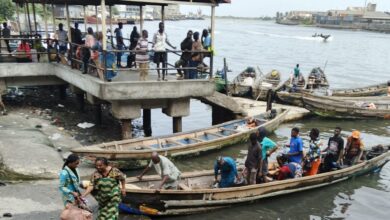

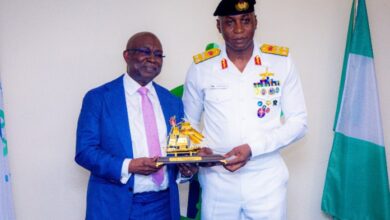
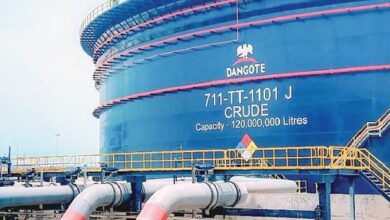
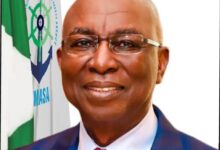
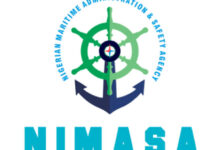
Awesome https://is.gd/tpjNyL
6ygc86
km3aog